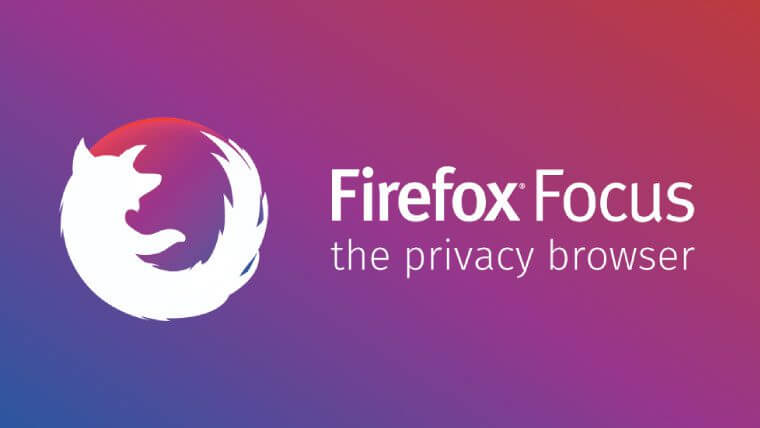5 Modern Browser Alternatives to Google Chrome
Browsers are the windows to the world wide web. Google Chrome rules the roost today, but a few new challengers might fit your needs better.
For all its great features, Chrome hogs system memory and drains the battery. But that huge collection of extensions, and exclusive features like Translate and Google Cast, make it hard to give up on.
If you are facing a lot of problems while using a browser, and you would like to use the other browser to solve it, then this post will help you to find out the best and latest alternative browsers to replace Google Chrome.
1. Colibri (Windows, Mac): Distraction-Free Browser Without Tabs
Back in the day, the advent of tabs revolutionised internet browsing. Colibri wishes he could go back in time. By keeping things simple, it’s the lightest and most portable browser available. There’s no need to worry about anything but the site you’re viewing thanks to a minimal title bar. To perform a Google search or to visit a new website, click the search symbol. The clean, nearly full-screen layout is a welcome change from the typical browser’s cluttering toolbars.
Colibri also lets you save links, and create lists out of those links. It’s cool and a different take on traditional bookmarking. Whenever you want to browse the web without distractions, Colibri is what you should use.
Download: The app is currently in beta, and you’ll need to email the developers to get access to the download link. It’s automated signup though, so no waiting periods.
2. Firefox Focus (Android, iOS)
Mobile browsers have been cramming so many features into them that it sometimes feels like overkill. Firefox Focus is all about being as lightweight as possible and protecting your privacy along the way.
Like Colibri, there are no tabs in Focus, just one window. It’s also a browser primed for privacy, which means it won’t store your passwords or browsing history. Focus also blocks third-party trackers by default, keeping your searches and browsing private from companies like Google and Amazon.

Firefox Focus is more secure since Mozilla is one of the few completely independent browser producers left today. Knowing that this is a Mozilla browser and that any significant security flaw would be rapidly fixed gives me some peace of mind at night. Of course, it’s possible that this isn’t up to the task of serving as your primary browser. Use Chrome or Safari, or give Firefox a go and see what all the fuss is about.
Download: Firefox Focus for Android (Free), iOS (Free)
3. Cocoon: Built-In Security and Privacy Tools
Cocoon started off as a Firefox security addon that was a toolbox of security and privacy essentials. It has now graduated into its own browser, made to protect you from the internet’s harm.
Create an account, and click the Power button in the browser to start Cocoon’s advanced security features. The browser encrypts all data flowing into and out of your computer, protecting you from data theft. This data goes through Cocoon’s servers for encryption.
There, the company also runs an antivirus to ensure you don’t download malware. And the browser also includes all the other bells and whistles of security today, like blocking Facebook from tracking you. Beyond this, Cocoon looks and behaves just like Firefox. In fact, you can even install other Firefox add-ons from the Marketplace.
4. Vivaldi Browser (Windows, Android)
Vivaldi’s features go beyond what you’d expect from a browser, giving you more control over how you use your PC and allowing you to get more done in less time. To make it easier to navigate between many windows, the application changes the tabs’ background colour to match the colour of the page you’re visiting. Additional information about what you’re doing with the browser may be found by adding notes to each tab.
Even if the colour recommendations aren’t much assistance, Vivaldi enables you to establish a single tab to which you may add as many windows as you like if you frequently open several tabs. So, if you have a smattering of websites with a common subject, you may consolidate them into a single tab to simplify navigation. Another benefit is the ability to hide a website’s visuals, remove all the content you’re not interested in, and focus just on the formatting of the text.
5. Brave (Windows, Mac, Linux, Android, iOS): Ethical Ad-Blocking
The issue with advertisements is a tricky one. It’s one of the ways that your favourite websites can keep their content free. However, disruptive advertisements degrade the experience of using the internet. Brendan Eich, a co-founder of Mozilla, is confident that his newest browser, Brave, is the solution to the problem.
Brave has the ability to eliminate trackers and even prevent malicious advertisements. But in addition to that, it enables you to establish a system for micropayments. You accomplish this by essentially adding some money to an electronic wallet. Brave will keep a record of the websites you visit as well as the advertisements it blocks on your behalf. Then, at the end of the month, it will divide that money up so that it may pay for your prefered websites.
It’s a great technique that allows you to support websites while removing annoying advertisements. Aside from this, Brave is a fully-fledged browser in and of itself. In addition to that, the source code is freely available to the public.
Final Words
Which Internet Browser do you typically use? There are more modern browsers that point to the future of online surfing that is not included in this list of five. It would appear that popular web browsers such as Chrome and Firefox are falling farther and further behind the standards of the internet’s future architecture. Which web browser are you using right now? What features would you like to see in the perfect web browser?

